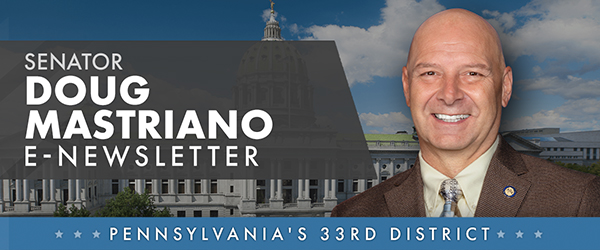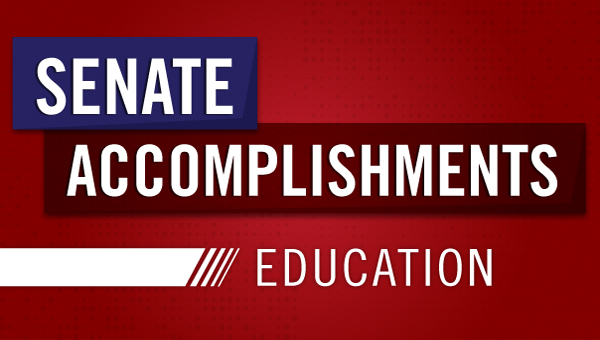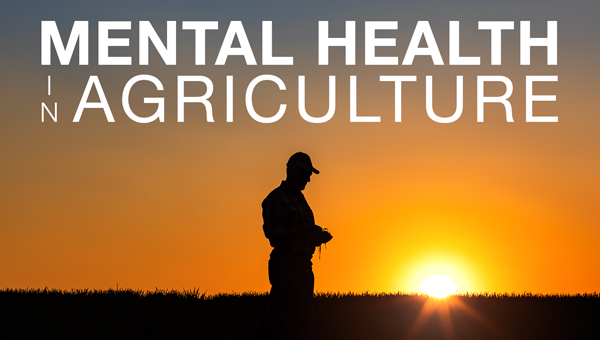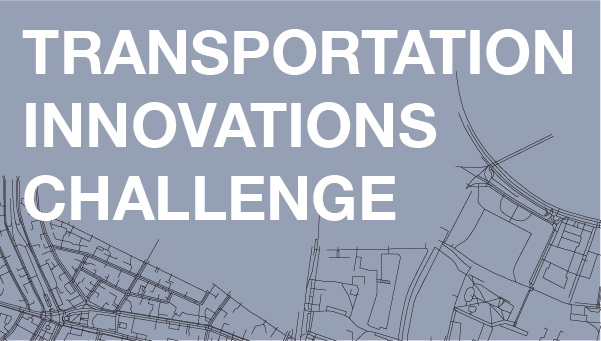
|
||||||||||||||||||||||||||||||||||||||||||||||||||||||||||||||||||||||||||||||||||||||||||||||||||||||||||||||||||||||||||||||||||||||||
|
In this Update:
Op-Ed: Reevaluating how Pennsylvania funds educationOne constant in Harrisburg is that no matter how much more money taxpayers spend on education every year, political activists will say it’s not enough. Now this decades-old debate has been taken out of the hands of the people’s elected representatives and turned over to Pennsylvania’s Commonwealth Court, which is hearing arguments in a lawsuit filed over how public schools are funded. The suit was originally filed in 2014 and dismissed at that time by Commonwealth Court. The State Supreme Court has since stepped in and told the Commonwealth Court to take up the case again. It moves forward while taxpayer-funded attorney fees unfortunately mount. The frustrating part for taxpayers is that the case emanates from the myth that Pennsylvania schools, especially schools in low-income areas, are underfunded by the state. Pennsylvania is seventh in the nation when it comes to education funding and spends more than $19,000 per student each year. The national average is around $15,000. According to Department of Education revenue numbers, state funding of public education in Pennsylvania has consistently increased for decades while enrollment continues to decline. Even accounting for inflation, education funding has gone up 68% since 1990 and 28.8% since 2012. Plaintiffs in court argue that the system in unfair because some school districts receive more funding that others. They point to this as the sole reason for differences in academic performance. But these discrepancies in academic performance are less about the funding these schools receive and more about outside environmental factors. With the rise in broken homes in certain communities, more students are coming to school unprepared to learn. No amount of money is going to allow these schools to do what they cannot: fill in for disengaged or absent parents. Perhaps before allocating more money into a broken system, we should take a deeper dive into how current funding is allocated. Pennsylvania’s average teacher salary of $70,000 is 11th in the nation and growing administrative staff only adds to staffing expenses. A 2012 EDChoice report revealed that from 1950 to 2009, student populations increased by 96%, while non-teaching staff increased by 702%. Over staffing and administrative bloat have become commonplace in Pennsylvania school districts. There is also little to no state oversight over how schools spend their funds on new materials and technology. For example, a school in Lancaster was recently called out in court for purchasing Apple classroom products when Chromebook options were significantly cheaper. They couldn’t even explain in detail why the Apple products were superior to the more affordable alternatives. An entrenched bureaucracy of growing administrative staff, powerful teacher unions and ideologically driven consultants fight reform of public schools at every turn. The definition of insanity is doing the same thing over and over again and expecting different results. It’s time to rethink how we fund education in Pennsylvania. One way to bring true fairness in education, regardless of zip code, is to let families choose the best schools for their children. We can do this by strengthening Pennsylvania’s Educational Improvement Tax Credit (EITC) and Opportunity Scholarship Tax Credit (OSTC), which provide scholarships to lower- and middle-class K-12 students. These scholarships allow parents to have the choice of where they send their child to school. We can pass Senate Bill 527, which would provide for an automatic escalator to these programs so arbitrary government caps on credits no longer deny thousands of children quality education each year. The General Assembly should also pass Senate Bill 733 and SB 999. SB 733 would create the Education Opportunity Account Scholarship Program for Exceptional Students. SB 999 creates the same for Active-duty military families. EOAs allow parents to afford placing their child in the school of their choice. They cover expenses such as tuition, curriculum, tutoring, and internet access. Recently, the Senate approved three bills that preserve school choice access for families and give more flexibility to students pursuing college degrees without incurring unnecessary debt. Senate Bill 931 excludes pandemic stimulus payments from a household’s income when determining eligibility for the EITC and OSTC. This important legislation ensures children will not see their educational opportunities diminished because of one-time government handouts. Senate Bill 932 revises the definition of “school-related fees” so students can use EITC and OSTC scholarships toward dual enrollment programs. This option gives Pennsylvania’s next generation of professionals the flexibility to pursue college degrees or access career training in high school while minimizing excessive student loan debt. Increased competition will ultimately improve public schools as well. Those who innovate and adapt to meet the expectations of parents will thrive. Those who continue down the road of failed policies will lose students to non-public school alternatives. Pennsylvania taxpayers are not dumb. They know that public schools receive more tax dollars than ever and that pouring even more into a broken system won’t help children or improve academic performance. Let’s change the system and give parents the power to choose their children’s education. Mastriano Introduces Historic Legislation to Protect Parental RightsJanuary 6, 2022 HARRISBURG – Senator Doug Mastriano (PA-33) formally announced the introduction of a state statute that explicitly defines and protects parental rights as fundamental rights. SB 996 will make it clear that the state government or any of its political subdivisions may not infringe upon the fundamental rights of a parent to direct the upbringing, education, health care, and mental health of his or her minor child. The statute is significant in that it will prevent parental rights from being eroded through hostile court actions in the future and prevent the courts from ruling parental rights as “ordinary” rights. When rights are considered “ordinary,” the government has more leeway in overriding the decisions of parents. “This statute is needed now more than ever after the constant eroding of parental rights over the past two years,” said Senator Mastriano. We saw instances where parents were labeled as domestic terrorists simply for advocating for what they felt was best for their child. We saw schools shuttered and parents left without in person learning alternatives. SB 996 will provide parents the legal protection they need when overreaching bureaucrats attempt to overrule their voice. When it comes to raising children, parents are better than the government.” Passage of SB 996 would join Pennsylvania with 12 other states that currently recognize a parental rights statute. The bill now awaits a vote in the State Government Committee. Mastriano provides update on illegals sent to PennsylvaniaJanuary 13, 2022 HARRISBURG – Senator Doug Mastriano (PA-33) has looked further into the issue of the Biden Administration sending illegal immigrants to Pennsylvania shortly after their apprehension at the southern border. The “ghost” flights in the middle of the night to Lehigh Valley last month are far from the only transit flights that ICE has sent to PA this year. According to the U.S Department of Homeland Security, ICE conducted over 900 domestic flights of illegal immigrants around the U.S in 2021. One of the destination cities was identified as Harrisburg, PA. ICE also conducted at least 11 “transfer” flights into Philadelphia. It’s unknown how many passengers were on each flight and the final destination for each passenger. DHS has also issued “Notices to Appear” in court for over 250 illegal immigrants released in the Philadelphia area. Additionally, according to a forthcoming report from the DHS Office of Inspector General (OIG), ICE has failed to ensure migrants are tested for COVID-19 before transport on flights and has not maintained records for the illegals who are transported. “I think these findings are just the tip of the iceberg,” said Senator Mastriano. “We need to further examine the total number of illegal immigrants being sent to PA by plane and bus. We also need to look at how much this is costing taxpayers and if Governor Wolf and Attorney General Shapiro were notified of the flights beforehand. Did they decline to inform the public?” Senator Mastriano is a co-sponsor of legislation by Senator Mario Scavello that will initiate a program to send newly arriving illegal immigrants to the state of Delaware. The below findings emanate from a DHS response to inquiries from U.S Senator Ron Johnson. ICE Air Operations, Domestic Transfers and Flights FY 2021:
FY 2021 ICE Air Operations, Cities Transited:
FY 2021 ICE Domestic Transfer Flights:
Notice to Appear (NTAs) Issued by AOR, Releases Between March 21, 2021 and August 31, 2021:
Senate Accomplishments: Education
Building on last year’s efforts, Senate Republicans will continue their work in 2022 to ensure students receive a proper education during the shifting elements of the pandemic. In 2021, the Senate acted to allocate $500 million in federal funds to help ensure schools reopened, sustained safe operation and addressed student needs resulting from the pandemic. For students who experienced learning loss, the Senate passed a new law allowing parents the option to have their child repeat a grade level during the 2021-22 school year due to COVID-19. Other legislation passed by the Senate eased school staffing shortages by making permanent a temporary program that gave schools an option to use teachers-in-training as substitutes and providing schools with more hiring flexibility for day-to-day substitutes. You can find more key education bills passed by the Senate here. Farmers and Mental Health Discussed by Senate Committee
The Senate Agriculture and Rural Affairs Committee this week held a discussion about mental health in agriculture at the Pennsylvania Farm Show Complex and Expo Center. The panel heard from Secretary of Agriculture Russell Redding, mental health professionals and others about the unique challenges faced by farmers. Pennsylvania recently received a two-year, $500,000 federal grant to bolster mental health services and resources for the agricultural community, and the Department of Agriculture is launching a statewide education and awareness campaign in February. The department is working with the national AgriSafe Network to provide a 24/7 mental health hotline for agricultural producers in the near future. Homeowner Assistance Program Opens Feb. 1
Beginning Feb. 1, income-eligible Pennsylvania homeowners facing unforeseen financial hardships because of the COVID-19 pandemic can apply for assistance. The Pennsylvania Homeowner Assistance Fund (PAHAF) will help Pennsylvania homeowners whose household income is at or below 150% of the area median to prevent or ease mortgage delinquencies, defaults, foreclosures, displacement and utility disconnection. The General Assembly allocated $350 million in federal funds for the program. The legislature also established a Construction Cost Relief Program to support the production of developments by addressing financial deficiencies directly attributed to the effects of the pandemic. Homeowners can learn about PAHAF and see a list of organizations that can assist them by visiting www.pahaf.org or by calling the PAHAF call center at 888-987-2423 Monday through Friday from 8 a.m. to 8 p.m. Caring for Dogs in Winter: The Law
Now that cold weather is upon us, I’d like to remind you of the 2017 law designed to prevent animal cruelty in harsh conditions, particularly involving dogs. Under Act 10 of 2017, an unattended dog may be tethered for no more than nine hours in a 24-hour period and must meet the following criteria:
Penalties range from up to 90 days in jail and/or a $300 fine for neglect to seven years in jail and/or a $15,000 for aggravated cruelty. You can read more about Pennsylvania’s animal cruelty laws here. Jan. 21 Transportation “Innovations Challenge” Deadline
High school students have until Jan. 21 to submit entries in the Pennsylvania Department of Transportation’s latest Innovations Challenge. The contest encourages students to use their problem-solving and creative abilities to solve real-world transportation challenges in a competition among their peers. This year’s Innovations Challenge asks students to develop a comprehensive and cost-effective public engagement strategy, beyond the current public engagement procedures (outlined in Publication 295) that uses innovative technologies and tools that PennDOT can implement to more effectively engage and connect with all age groups during the transportation planning and project development process. Regional challenge winners will be selected and invited to compete for the state championship, which will be held in spring. The first-place team wins $4,000. Martin Luther King Jr. Day Monday is Martin Luther King Jr. Day across America. It’s a time to rededicate ourselves to bridging divides and fostering true racial harmony. “I have a dream that my four little children will one day live in a nation where they will not be judged by the color of their skin but by the content of their character.” – Rev. Martin Luther King Jr. |
||||||||||||||||||||||||||||||||||||||||||||||||||||||||||||||||||||||||||||||||||||||||||||||||||||||||||||||||||||||||||||||||||||||||
|
||||||||||||||||||||||||||||||||||||||||||||||||||||||||||||||||||||||||||||||||||||||||||||||||||||||||||||||||||||||||||||||||||||||||




Want to change how you receive these emails? 2026 © Senate of Pennsylvania | https://senatormastriano.com | Privacy Policy |





